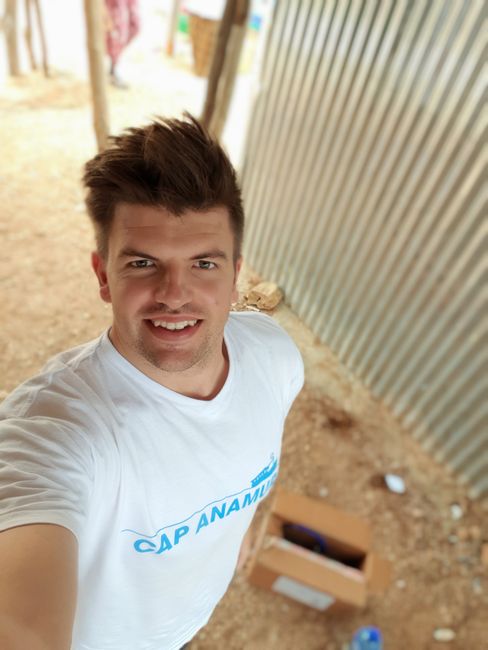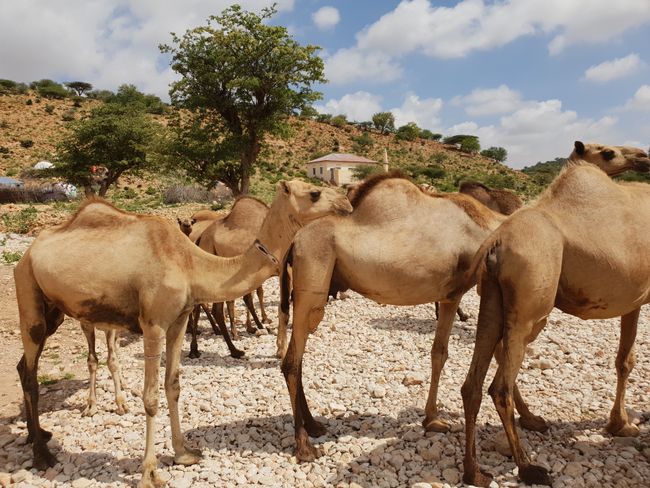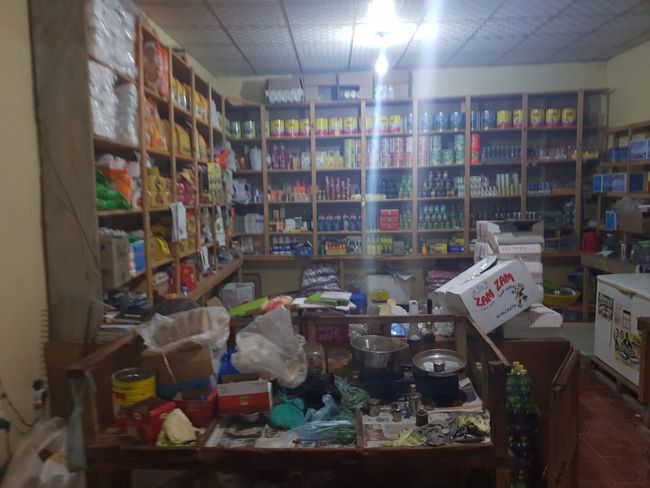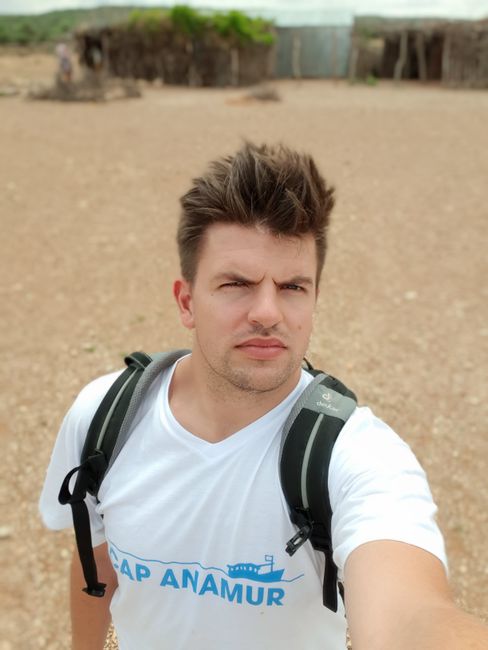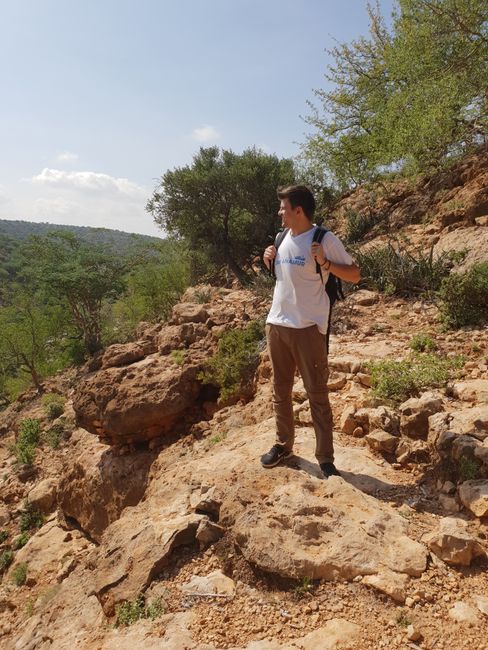Half time!
Diterbitkeun: 30.11.2018
Ngalanggan Newsletter
As is sometimes customary in sports reporting, I will also conduct a short halftime interview. I am the interviewer and, of course, I will also provide the answers myself :D
Hi Alex, nice that you found the time for a short interview. First and foremost, how are you?
Thank you for asking. I am doing very well here. Of course, life here cannot be compared to life in Germany, but basic needs are completely covered here and luckily I have been spared from major illnesses so far.
You have been in Somaliland for almost three months now. What is your interim conclusion so far? Does it meet your expectations, or is it completely different than you thought?
Before traveling to Somalia or Somaliland, I actually had no specific idea of what life and everyday life would be like here. Of course, before embarking on such a trip, you read a lot, especially about safety concerns and cultural differences. Some of my friends and family were worried about my safety. The reality is usually quite different from what is written, I myself have not yet been in a situation where I feared for my life or worried that something might happen to me. However, the work in the project is a bit different from what I had imagined, but this also has to do with the fact that the work in the hospital is surprisingly going well. I had actually thought that I would work more directly with patients and assist the nurses and caregivers with one thing or another, but this is not necessary so often, as the nurses in Somaliland also undergo a three-year training and learn a lot about people and diseases there. All in all, my interim conclusion regarding the project is positive and the work we do here daily is quite meaningful and helps the local people.
You mentioned the project, what exactly do you do there and what are your tasks like?
In Caynaba, Cap Anamur supports a regional hospital, we expand it and offer free medical assistance to the surrounding villages. We currently employ 54 people at the hospital and care for more than 30,000 patients in the entire project each year.
What does the assistance look like specifically?
In the hospital itself, patients have the opportunity to consult a doctor around the clock. The doctor then decides on the further course of action. If the patient needs further blood tests, our laboratory performs them. If the patient needs to be admitted, he or she is assigned a bed, provided with meals and medication by us. But there are also many patients who only come to us for outpatient care and are sent home with the appropriate medication. We are also currently building an isolation ward at the hospital so that patients with highly contagious diseases can be isolated accordingly.
In addition to the work in the hospital, we also have a mobile clinic. In this clinic, a team consisting of two nurses and a doctor travels to various remote villages in the region and provides help directly on site. We are also currently planning to establish health posts at various points in the region. These health posts will be manned by two nurses with a basic supply of medications, and residents of the surrounding region can visit the health post if needed, receive an initial medical assessment, and also be provided with medications.
Why are facilities like a health post necessary in the first place?
The healthcare system and healthcare provision in Somaliland cannot be compared to the healthcare system in Germany in any way. While in Germany an ambulance must be on site within 10-15 minutes, people here often have to take long walks just to receive any medical support at all. For example, in the mobile clinic, we treated a man who had walked for 7 hours to avail himself of our treatment. In addition to medication for his gastritis, we also gave him something for his knee pain, which he had due to the long journey. With the health posts, we want to make it easier for people to access medication and medical care.
How is all of this actually funded?
Since there is no functioning health insurance in Somaliland yet and the government also provides very limited support, all of this is financed through donations from people in and around Germany.
In addition to the man who walked for seven hours to be treated by you, what other moments stand out in your memory?
Certainly the many malnourished children we treat here almost every day will remain in my memory. Also, the two babies who died in the hospital a while ago, one after the other. Just two days ago, a baby also died during the night. The mother then wrapped the child's body in cloths and left it lying in the children's ward and left the hospital during the same night. The next morning, the child was already completely stiff, and I could not understand why the body could simply be left behind like this. However, the mother probably had to return to her family because she had other children to take care of, or she was also overwhelmed by the situation.
But in addition to such stories, of course, the beautiful moments and things also remain in memory, and the many grateful faces that one can see when the people start feeling better again.
Such situations are surely not always easy for you. What challenges do you see in the project?
The challenges in the project should certainly be divided into different challenges. There is the personal challenge, for example. In the project, we are under police protection 24 hours a day, and the residential building we live in is surrounded by a high wall topped with barbed wire. So you can't just go to the café around the corner and meet up with friends or go for a run to clear your head. We are also very limited in our food choices. No alcohol, no chocolate, and very little meat. Most of the time, the food choices are limited to spaghetti, rice, or beans. The positive thing about it is that I have already lost several pounds
In addition to the personal challenge, of course, the work in the hospital and in the project also brings some challenges. How are conflicts resolved, how do you get the nurses to better document their work, how can the work and assistance on-site be improved?
Do conflicts ever arise due to different cultures?
No, actually not at all. In general, people in Somaliland argue and debate more emotionally and sometimes louder and then quickly deviate from the factual level. Often, however, at the end of the conversation, a consensus is found that everyone involved can live with. However, I have not yet experienced any conflicts here due to different skin color or different beliefs.
Has your view of development aid changed through your work on the project?
Overall, I consider our work here to be very meaningful. The people who live here often have no electricity or access to clean water and often still cook over an open flame. Through us, the people here have access to basic medical care. However, there are also moments and considerations that make me think more deeply. In addition to Cap Anamur, other aid organizations are also active in the region. One of them is, for example, the WFP (World Food Programme) which provides food and water to the people here. Of course, this is also very helpful, but at the same time it also contributes to the fact that people remain in a region where they cannot adequately provide for themselves or their animals and are permanently dependent on food donations. By 2050, more than 250 million climate refugees are expected, so these food donations only postpone the problem and keep people in a region where they can no longer live, but which is also their home.
You have been in Somaliland for almost 3 months now. What are your plans for the future and are there already considerations for what comes after?
Next week, we will probably open our first health post. The employees there have to be trained and familiarized with our documentation procedures. We also plan to visit a second health post later this year, initiate construction measures, and look for suitable personnel. For the new year, I have the idea of introducing a 'teaching system' in the hospital, where the medical staff is trained and familiarized with lifelong learning. In January, another employee of Cap Anamur will also come to the project. Maybe we can get an idea of the ITP camps in the region together. Thousands of people live in the camps, who lost all their livestock during the last drought period and are now dependent on community support and aid organizations. Unfortunately, I haven't had the time to get an overview of this myself so far.
After the project, I plan to work again in my previous position for now. However, if the medical studies should not work out in the foreseeable future, I can very well imagine working in another project for Cap Anamur again. Currently, for example, Cap Anamur is assessing the situation in Yemen.
In addition, I would like to buy a vintage car and drive it over the Alps to Rome, but I can't say yet if this will actually happen.
Thank you for the interview.
#AlexinSomaliland
Ngalanggan Newsletter
Waleran (4)
Cornelia
Alex, tolle Idee. Klingt nach einer durchweg positiven Zwischenbilanz. Klasse, dass du das machst. Margreth
Hallo Alex ,erstmals sind wir froh ,wenn du wieder nach hause kommst, und nicht schon wieder Pläne für weitere Projekte schmiedest,denn du vergisst sonst dein schönes Kesselbach.Danke für deinen Bericht ,der wieder sehr interesant und aufschlußreich ist. GLG.
Sonja
Ein tolles Interview. Jeder hat Träume und Pläne. Das schöne ist, dass man sie heutzutage bis ins hohe Alter leben kann.Sim
Ein tolles und interessantes Interview!
